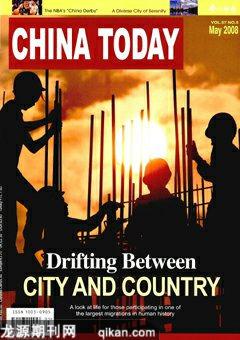Drifting Between City and Country
Beginning in the 1980s, higher incomes and greater job opportunities in Chinas large cities have been enticing growing numbers of farmers into becoming migrant workers. “An important reason why the United States attracts so many immigrants is its ample job opportunities and high incomes due to its high level of economic development. The population drifting from rural areas into cities in China is similar,” said Wang Meiyan, an associate researcher with the Institute of Population and Labor Economics at the Chinese Academy of Social Sciences (CASS).
Currently, the migrant population has reached an unprecedented level. About 200 million farmers have left their homes to earn a living in cities. In the provinces of Sichuan and Henan, about 20 million farmers leave their villages to work in cities annually, bringing back income exceeding RMB 100 billion. In the provinces of Anhui, Jiangsu and Hunan, more than 10 million farmers migrate into cities every year, working in manufacturing, building and the service industry, sectors urbanites are reluctant to get into. Migrant workers are not entitled to the welfare protections that city dwellers enjoy, such as minimum living allowances, but that has not stopped the exodus.
Some scholars classify migrant workers as a new social stratum due to their large number, but Wang Meiyan disagrees. “From a long-term point of view, the goal of urbanization is to enable them to become a part of the city,” she said.

